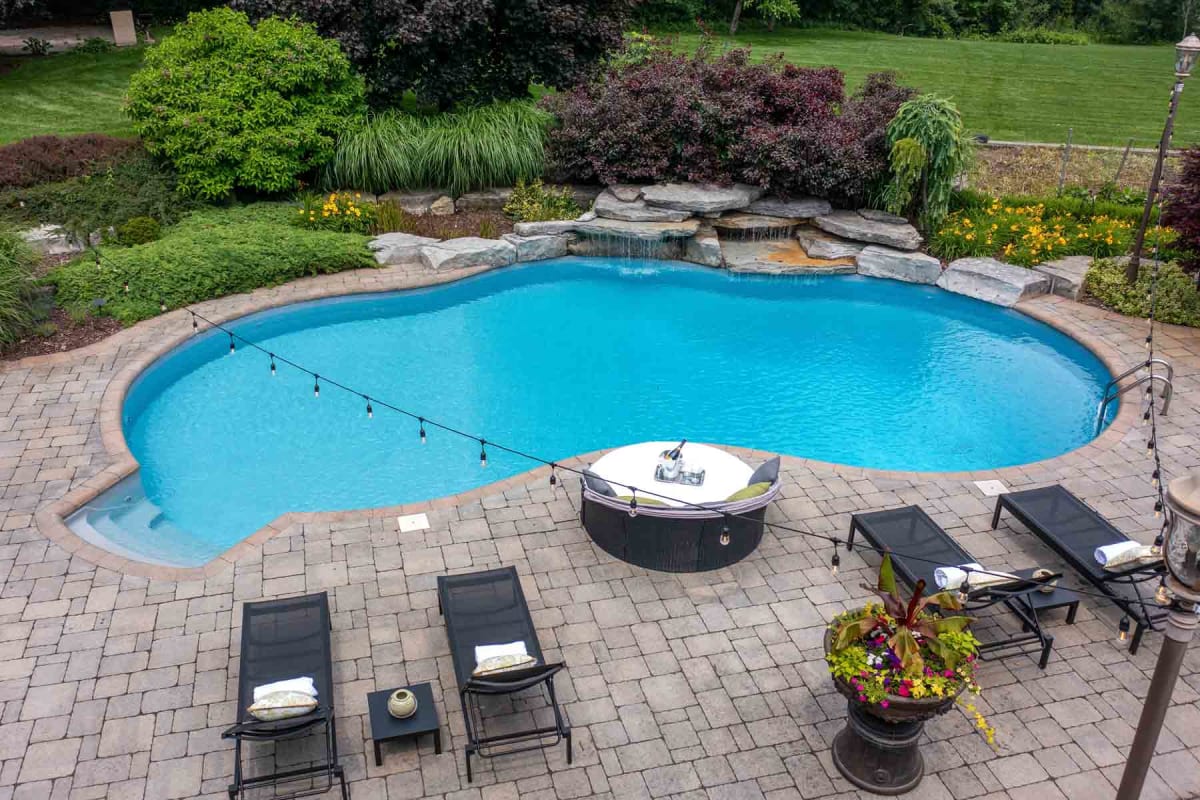
How much does it cost to run a pool pump?
How much does it cost to run a pool pump?
$30 – $150 average cost per month
$360 – $1,800 average cost per year
Cost to run a pool pump
The cost of running a pool pump is $75 to $150 per month for a single-speed pump or $30 to $50 per month for a dual-speed pump running 8 hours per day. Dual- or multi-speed pumps lower the flow rate as needed, while single-speed pumps always run at full power.
| Pump type | Cost per month | Cost per year |
|---|---|---|
| 2-Speed | $30 – $50 | $360 – $600 |
| 1-Speed | $75 – $150 | $900 – $1,800 |
2-Speed pump
Dual-speed and variable-speed pool pumps cost $30 to $50 per month to run. They use high and low settings as needed to reduce unnecessary energy consumption. These pumps use low-power settings for filtering or circulating the water and high-speed settings for vacuuming.
1-Speed pump
A single-speed pool pump costs $75 to $150 per month to run on average. Single-speed pumps run at full speed all the time and don't regulate how much power they use, so they're less efficient and end up costing much more to run.
What affects the cost of running a pool pump?
The following factors affect the cost of running a pool pump:
Local energy costs: Depending on where you live, your electricity costs may be more or less than average, with prices ranging from from $0.13 to $0.40 per kWh.
Pump size: If you have a larger pool, you'll need a more powerful pool pump that uses 2,000 to 2,500 watts instead of 1,000 to 1,500 watts. The pool pump itself costs $300 to $1,600 with installation.
Run time: Most people run their pool pump 8 or more hours per day in the summertime and 1 to 5 hours in the wintertime. If you have a lot of trees or debris that get in the pool, you'll need to keep it running and empty the filter more often.
Filters: A pool filter costs $250 to $1,700 installed and needs replacing every 2 to 5 years.
Repairs: If your pump is damaged, you may be able to repair it for $50 to $300 instead of having to replace it.
How to save money on running your pool pump
Follow these tips to save money on running a pool pump and lower your electricity bill:
Choose a dual- or variable-speed pump. These cost more up front but save money on electricity in the long run.
Don't run the pump longer than necessary. You can experiment with the time by keeping your eye on the quality of your water.
Upgrade your piping from 1.5-inch to 2-inch pipes to reduce friction and resistance in your plumbing.
Use a bigger filter or one that uses diatomaceous earth (DE). This will increase efficiency and reduce the amount of time your pump has to run during the day.
FAQs about running a pool pump
Do pool pumps use a lot of electricity?
Pool pumps use 3,600 to 4,500 kWh of electricity per year or more, depending on the pump type and size. This translates to $360 to $1,800 per year in energy costs, depending on local electricity rates.
Is it okay to run a pool pump all the time?
Some commercial pools pumps can run 24 hours a day, but homeowners shouldn't run a residential pool pump more than 8 hours a day. Running the pump constantly isn't necessary to keep the water clean and ends up wasting energy as well as putting unnecessary wear and tear on the pump and filter.
Should I run the pump during the day or night?
You should run the pool pump during the warmest hours of the day because algae use sunlight to grow. You don't have to run the pump for 8 consecutive hours, so you can alternate or split up operating times during the day.
How long does a pool pump last?
A pool pump lasts 8 to 12 years on average before needing replacement. You may need a new pump if it's unusually loud, losing suction, or shuts off suddenly. To extend the pump's lifespan as much as possible, keep your filter clean.

Getting estimates from pool pump companies
Before hiring pool technicians or pool pump repair services near you, make sure to:
Compare 3 or more quotes from businesses that have several years of experience.
Verify that they have a business license, bonds, and insurance.
Check out ratings and reviews from customers on HomeGuide and Google.
Avoid the lowest quotes, which typically indicate low-quality work.
Request an itemized estimate in writing and follow a payment plan.
Questions to ask pool pump companies
Ask these questions to find an experienced technician:
How long have you been working with pools and pool pumps?
Are you licensed, bonded, and insured?
Do you have any reviews or testimonials I can see?
Do you give free estimates?
Can I repair this pool pump, or will I need a replacement?
How much should I be running the pump per day?
Do you offer any filter-cleaning services?
How long should this job take?
Do you offer a warranty or guarantee?